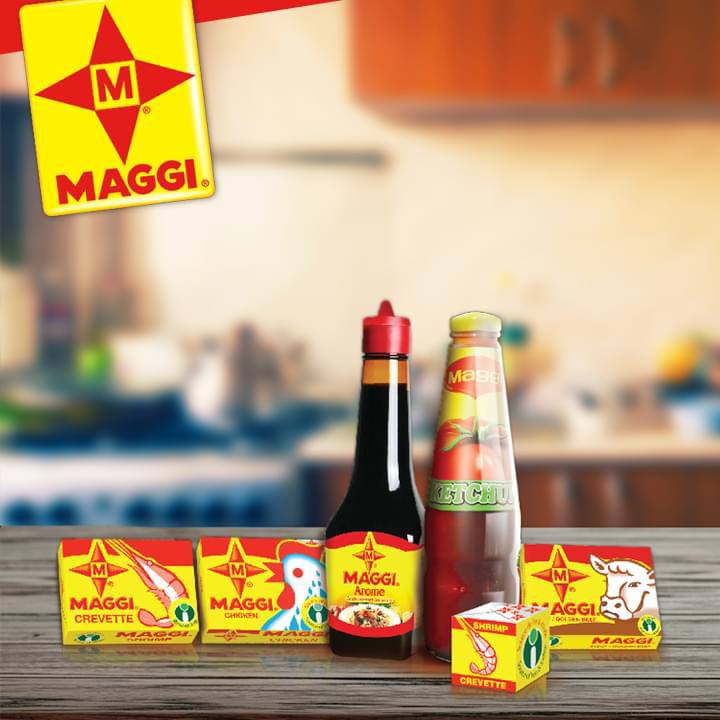Papua New Guinea (PNG) isn’t just known for its tribal culture and rugged landscapes—it’s also famous for how it uses a humble kitchen staple: Maggi cubes. In PNG, Maggi cubes are more than just a flavor enhancer; they’re practically a cultural institution, often referred to as “PNG Salt.” Ubiquitous in markets, corner shops, and even roadside stalls, these cubes are an essential part of the daily diet, giving life to otherwise bland or basic foods.
The Essential Maggi Cube
Walk through any market in Papua New Guinea, and you’ll see Maggi cubes sold in bulk. These small, stocky cubes, packed with salty umami flavor, are used as an all-purpose seasoning. For many in PNG, Maggi is the secret ingredient that transforms simple dishes into flavorful meals. Whether it’s boiled cassava, rice, or leafy greens, a sprinkle of Maggi turns an otherwise dull dish into something mouthwatering.


In a country where imported ingredients can be expensive and inaccessible, Maggi is a cheap, readily available solution for adding a hit of flavor to everyday meals. It’s like the PNG version of a seasoning salt, and no kitchen is complete without it.
Maggi in PNG Dishes
One of the most common dishes in which Maggi makes an appearance is the beloved “kaukau,” or sweet potato. Boiled kaukau on its own can be quite plain, but stir in a cube of Maggi, and suddenly you’ve got a comforting, savory meal that’s much more appealing to the taste buds. It’s also frequently added to rice, a staple food in PNG, to enhance its flavor without the need for additional expensive ingredients.
Then there’s “greens,” a term used to describe the various leafy vegetables that are commonly eaten in PNG. Whether it’s aibika, pumpkin leaves, or taro leaves, Maggi adds a savory depth that complements the slight bitterness of the greens.
In remote areas, where refrigeration is limited and access to fresh meat is scarce, dried fish or smoked meat is common. These proteins are often boiled and seasoned with—you guessed it—Maggi cubes, turning an otherwise monotonous meal into something much more flavorful.
I personally LOVE combining Maggi with chips and a great PNG Saveloy! Best had at a Kai Bar.


A Global Phenomenon
What’s interesting is that this isn’t just unique to Papua New Guinea. Maggi cubes are beloved in many other parts of the world, especially in Africa. In countries like Nigeria, Ghana, and Senegal, Maggi cubes are as essential as salt. From soups and stews to jollof rice, the small cubes of umami goodness are added to nearly every dish. Similarly, in the Caribbean, particularly in Haiti and Jamaica, Maggi is a kitchen must-have, flavoring everything from rice and beans to meat and vegetable dishes.
Even in Southeast Asia, where Maggi originated, it’s used not just for making instant noodles but as an all-purpose seasoning in many dishes. It’s an ingredient that transcends borders, connecting kitchens from PNG to West Africa.
You can read about PNG cuisine here. And do not even get me started on Maggi and Mumu.
Maggi: More Than Just Flavor
The Maggi cube’s role in Papua New Guinea’s food culture is more than just about flavor—it’s about making food accessible and enjoyable for everyone, regardless of income. In a country where many rely on subsistence farming, the ability to turn simple ingredients into delicious meals with just a cube of Maggi is a game-changer. It has become such a staple that its absence from a meal would be noticed immediately.
In many ways, Maggi has become a cultural touchstone in PNG. Whether you’re in the city of Port Moresby or in a remote village, you’ll find that people’s love for Maggi runs deep, as it’s often the secret to making a meal memorable.
The Final Word on PNG’s Love for Maggi
So, if you ever find yourself wandering through Papua New Guinea, don’t be surprised to see Maggi cubes being sold alongside fresh produce and local snacks. It may seem like just a seasoning, but in PNG, it’s a way of life—making even the simplest meal taste like a celebration. Whether it’s kaukau, greens, or rice, Maggi adds that unmistakable salty richness, turning bland dishes into satisfying comfort food.
Click the link to check out my PNG tours.

